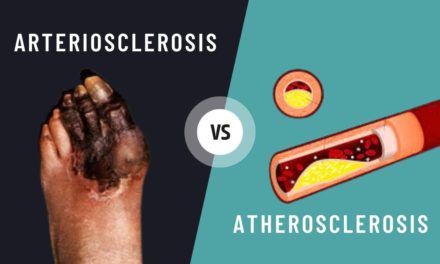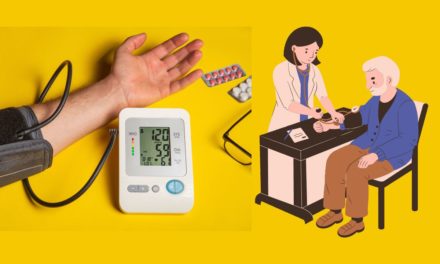Cardiac Neurosis: Understanding, Treating, and Preventing Anxiety-Related Heart Health Concerns
Introduction:
Cardiac neurosis, also known as cardiac anxiety or anxiety-related heart concerns, refers to excessive worry and fear about the health of the heart, often accompanied by a misinterpretation of physical sensations. Individuals experiencing cardiac neurosis may preoccupy with the idea of heart disease despite medical reassurance. Understanding the nature of cardiac neurosis, recognizing its effects on mental and physical well-being, and implementing appropriate treatment and prevention strategies are critical in managing anxiety-related cardiac concerns. In this article, we delve into the world of cardiac neurosis, exploring its causes, symptoms, treatment options, and preventative measures.
1. Understanding Cardiac Neurosis:
Cardiac neurosis is a specific form of health anxiety that revolves around heart-related concerns. Individuals with cardiac neurosis may experience intense anxiety and fear of having heart disease, even in the absence of objective evidence or medical diagnosis. This anxiety often leads to increased awareness of bodily sensations, misinterpretation of benign symptoms as signs of heart trouble, and a constant focus on heart health.
2. Causes and risk factors:
The exact causes of cardiac neurosis are not fully understood, but several factors may contribute to its development:
- a Previous trauma: Past experiences, such as having a heart attack or witnessing a loved one’s cardiac event, can contribute to the development of anxiety-related cardiac concerns.
- b Preexisting anxiety disorders: Individuals with an existing anxiety disorder, such as generalized anxiety disorder or panic disorder, may be more susceptible to developing cardiac neurosis.
- c Family history: A family history of anxiety disorders or heart-related conditions may increase the risk of developing cardiac neurosis.
- d Personality traits: Certain personality traits, such as high levels of anxiety or a tendency to catastrophize, may make individuals more vulnerable to developing anxiety-related cardiovascular concerns.
3. Symptoms and effects:
Cardiac neurosis is often manifested by both physical and psychological symptoms. These may include:
- a Physical symptoms: chest pain or discomfort, palpitations, shortness of breath, dizziness, sweating, nausea and fatigue.
- b Psychological symptoms: excessive worry about heart health, fear of heart attack or cardiac events, hypervigilance to physical sensations, preoccupation with heart-related symptoms, and reassurance-seeking behaviors.
The persistent anxiety and preoccupation associated with cardiac neurosis can significantly affect an individual’s quality of life, causing avoidance of activities, social withdrawal, and severe distress.
4. Treatment options:
Treatment of cardiac neurosis usually involves a combination of therapy, education, and self-help strategies. The following methods are commonly used:
- a Cognitive behavioral therapy (CBT): CBT is an evidence-based treatment method that helps individuals identify and challenge irrational thoughts and beliefs about heart health. It aims to reframe negative thought patterns, reduce anxiety, and promote healthy coping mechanisms.
- b Education and reassurance: Providing accurate information about heart health, the absence of heart disease, and the nature of anxiety-related symptoms can help reduce concerns and reduce anxiety levels.
- c Relaxation techniques: Learning relaxation techniques, such as deep breathing exercises, meditation, or progressive muscle relaxation, can help manage anxiety symptoms and promote a sense of calm.
- d Supportive counseling: Engaging in supportive counseling or joining support groups with people who are experiencing similar concerns can provide validation, reassurance and a sense of community.
5. Prevention Strategies:
Although it is not possible to completely prevent cardiac neurosis, some strategies can help reduce the risk and manage symptoms:
- a Stress management: Develop healthy stress management techniques, such as exercising regularly, practicing mindfulness or meditation, pursuing hobbies, and maintaining a balanced lifestyle.
- b Limiting health-related Internet searches: Avoid excessive searches for health-related information online, as this can increase anxiety and reinforce unfounded fears.
- c Regular check-ups: Make regular appointments with a healthcare professional to monitor heart health and discuss any concerns or symptoms. This can provide reassurance and promote early detection of any true heart condition.
- d Open communication: Share concerns with health care providers, family members, or close friends. Talking openly about fears and getting help can reduce anxiety and provide a sense of reassurance.
Result:
Cardiac neurosis, characterized by excessive anxiety and fear about the health of the heart, can affect significantly. Follow up on an individual’s mental health. By understanding its nature, recognizing the symptoms, and taking appropriate treatment and prevention measures, individuals can effectively manage anxiety related concerns. Early intervention, engagement in therapy, and the development of healthy coping mechanisms are Essential for promoting physical well-being. By fostering a supportive environment, raising awareness of mental health, and advocating for self-care and stress management, we can reduce the effects of cardiac neurosis and empower individuals to They can lead a life free from anxiety-related heart problems.










